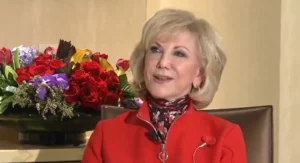The Four Quad Leaders Wrapped Their Conference In Tokyo Today
By TOI Desk
May 24, 2022
Update on : May 24, 2022

The four Quad leaders wrapped their summit today with a joint declaration pledging their “resolute engagement to a free and open Indo-Pacific that is accessible and sustainable.”
The message also remarked on how quickly the loose collaboration had formed. After essentially disbanding in 2008, the Quad was resurrected in 2017, and the four members’ leaders met for the first time last year.
Labor leader Anthony Albanese has been sworn in as the 31st Prime Minister. Wasting no time, he nominated four interim ministers this morning, before jumping on a plane to Tokyo, to meet the Quad leaders. @ShubaSKrishnan https://t.co/rlu9cIqIU8 pic.twitter.com/kjXEydq6r8
— SBS News (@SBSNews) May 23, 2022
Representatives of the Quad grouping of nations, including India’s Narendra Modi, expressed worry over the situation on the ground during their meeting in Tokyo on Tuesday, according to Japanese Prime Minister Fumio Kishida.
“The four rulers had an open conversation about the impact of the Ukraine scenario on the Indo-Pacific region,” Kishida said. “We, including India, voiced our concern about the terribly sad war in Ukraine and proved that fundamentals such as the rule of law, sovereign rights, and national sovereignty should be observed in any region.”
Kishida made the remarks during a meeting of the Quad leaders, which comprised Modi, US Vice President Joe Biden, and Australia’s freshly elected Prime Minister Anthony Albanese.
According to Kishida, all four, including Modi, agreed on the significance of the rule of law, sovereignty, and territorial integrity.
Even though India has forged tight relationships with the United States in recent years and is an important member of the Quad grouping aimed at countering China, it also has a lengthy relationship between the two countries, which remains a key provider of defense equipment and energy supplies.
The statement emphasized hurdles to the maritime rules-based system, especially in the East and South China Seas, which have long been disputed, with various nations claiming overlapping territorial claims.
Read More: US and EU Declare Worldwide Promise to Cut Methane
China claims nearly the whole South China Sea just like its national sovereignty. It has been constructing and arming its facilities there, converting islands into military outposts and airstrips, and supposedly forming a naval militia of several boats.
Furthermore, China claims sovereignty over the Japanese-controlled Senkaku Islands, also known as the Diaoyu Islands, in the East China Sea. In recent years, the United States has reaffirmed its commitment to protecting the islands in the case of foreign assault.
















